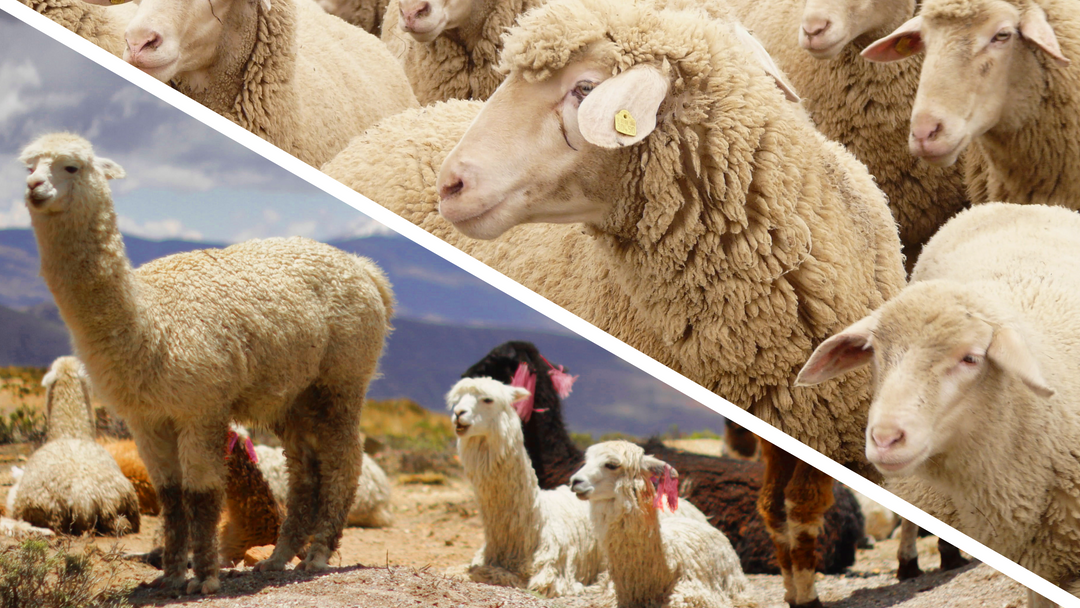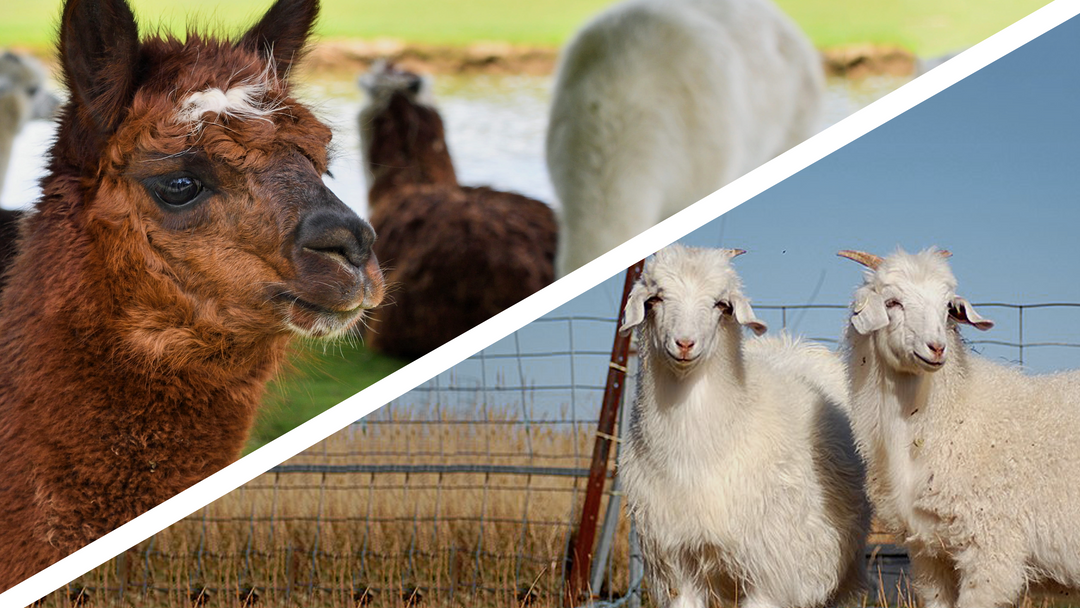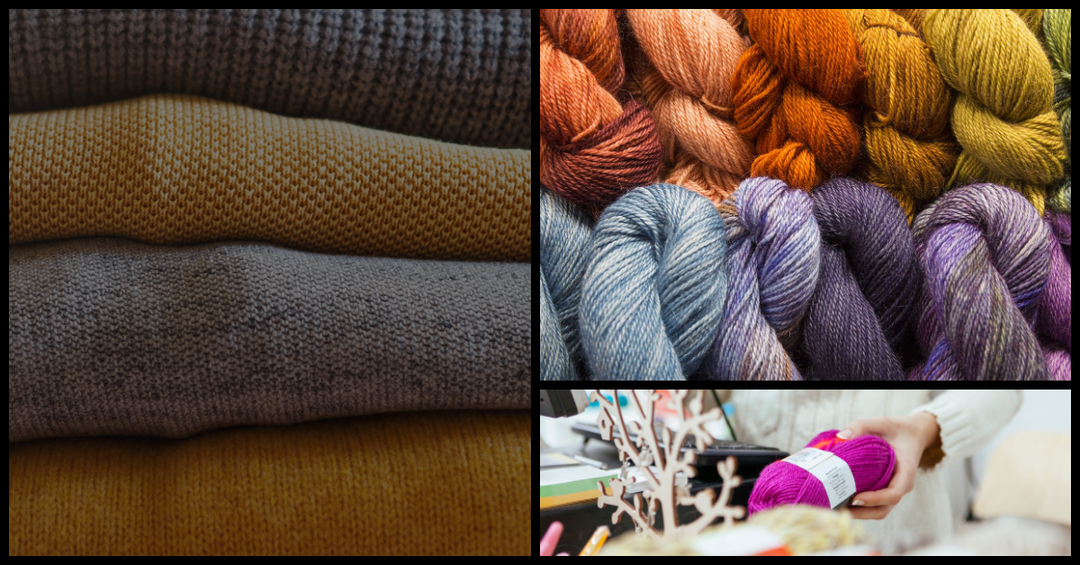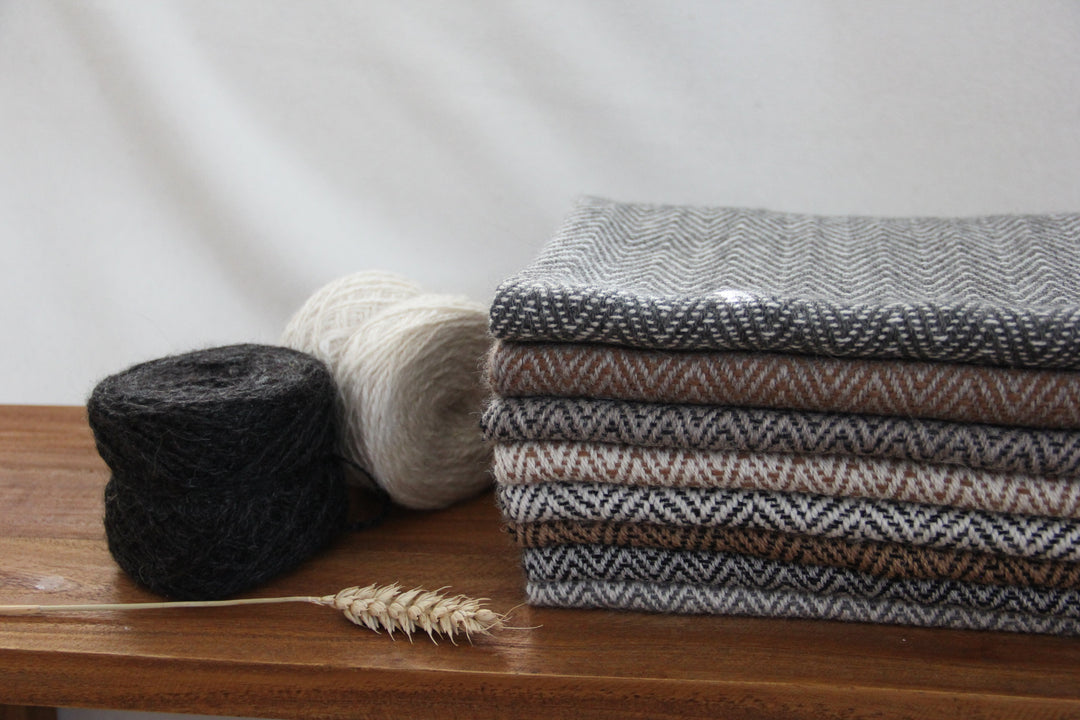In the world of textiles, there are a variety of materials to choose from, ranging from inexpensive synthetic fibres to luxurious natural fibres such as alpaca wool. When deciding on a garment or accessory, it is important to consider both the aesthetic and functional aspects of the materials used. In this article, we will look at the differences between synthetic materials and alpaca wool to give you an insight into the benefits of the different materials and help you make the best possible choice for your needs and lifestyle.
Choosing the right material is crucial, as this not only affects the aesthetics and comfort of the product, but also its durability and environmental impact. Throughout this article, we will highlight the benefits of alpaca wool over synthetic materials and show you why alpaca wool is considered a high quality, luxurious and sustainable choice.
In today's fast-paced world, it is all too easy to opt for mass-produced and cheap products that are not sustainable or environmentally friendly. But it is important to consciously choose high-quality, durable and sustainable materials that not only look good, but are also good for our environment and our planet. Alpaca wool is one such material that not only embodies style and luxury, but also makes a positive contribution to a more sustainable future.
What is synthetic material?
Synthetic materials are man-made fibres derived from chemical compounds and polymers. These materials are the result of scientific and technological advances in the textile industry aimed at providing cost-effective alternatives to natural fibres. Synthetic materials are practical in many ways, as they are usually lightweight, durable and easy to care for. In addition, they can be made in a variety of colours, thicknesses and textures, giving them great versatility in terms of design and functionality.
Some of the most common synthetic materials used in the garment and textile industry are polyester, nylon, acrylic and spandex. Each of these materials has its own specific properties that make them suitable for different applications. For example, polyester is known for its wrinkle resistance and shape retention, while nylon is valued for its exceptional strength and elasticity. Acrylic is often used as a cost-effective substitute for wool as it has similar warming properties, while spandex is incorporated into garments to provide stretch and comfort.
Despite their practical advantages, synthetic materials also have some disadvantages, especially in terms of environmental aspects and sustainability. The production of synthetic fibres is usually energy-intensive and generates greenhouse gases and other harmful emissions. In addition, synthetic materials can release microplastics when washed, which can enter the environment and ultimately the food chain. We will look at these and other aspects in more detail later in this article and compare them with the properties of alpaca wool.
What is alpaca wool?
Alpaca wool comes from alpacas, a species of camel that is primarily native to the Andes Mountains of South America. These animals are known for their soft, high-quality and luxurious wool, which has been prized and used by indigenous Andean peoples for thousands of years
Alpaca fibre is naturally light, warm and resistant to abrasion and pilling. It is also characterised by its natural elasticity and breathability, which makes for excellent wearing comfort. Unlike many other types of wool, alpaca wool is hypoallergenic and contains no lanolin, making it particularly suitable for people with sensitive skin or wool allergies.
In recent years, alpaca wool has gained popularity worldwide as more and more people discover the many benefits of this sustainable and environmentally friendly natural fibre. In the remainder of this article, we will compare the properties of alpaca wool and synthetic materials and explain why alpaca wool is the higher quality choice.
Comparison of synthetic material and alpaca wool
In this section, we compare the properties of synthetic material and alpaca wool to highlight their differences and the advantages of each material. This helps us understand why alpaca wool is the better choice for high-quality clothing and textiles.
Properties and quality
Synthetic materials, such as polyester and nylon, are usually lightweight, durable and quick-drying. However, they are not as breathable as alpaca wool and can make you feel uncomfortable during vigorous physical activity or high temperatures. In addition, synthetic fibres tend to retain odours more strongly and therefore need to be washed more often. Alpaca wool, on the other hand, is naturally breathable, temperature-regulating and odour-resistant, which makes it comfortable to wear.
Long-lasting
Synthetic materials are known for their durability, but can lose quality, fade or lose their shape over time. Alpaca wool is also tough and durable, but retains its shape and colour better. It is also less prone to pilling and abrasion, which makes it a more durable material for clothing and textiles.
Environmental and ethical aspects
The production of synthetic materials requires the use of petroleum and other chemicals, which can have a negative impact on the environment. In addition, the production and degradation of synthetic fibres creates microplastic particles that enter the environment and pollute marine ecosystems. Alpaca wool, on the other hand, is a sustainable, environmentally friendly natural fibre that is biodegradable and renewable. Keeping alpacas also has a smaller environmental footprint, as they use fewer resources and feed naturally.
Comfort and luxury
Synthetic materials can be inexpensive and practical, but they don't offer the same level of comfort and luxury as alpaca wool. The soft, fine and smooth texture of alpaca fibres provides an incomparably comfortable feel against the skin. In addition, the natural thermal insulation and breathability of alpaca wool lends the textiles and garments made from it a particular exclusivity and value.
In summary, alpaca wool has a clear advantage over synthetic materials in terms of quality, comfort, durability and environmental friendliness. In the next section, we will go into more detail about the reasons why alpaca wool is the better choice.
Why alpaca wool is the better choice
Alpaca wool offers numerous advantages over synthetic materials, such as higher quality, better environmental performance and durability. In addition, alpaca wool is hypoallergenic, making it suitable for people with sensitive skin.
Another reason why alpaca wool is a good choice is that it's not a synthetic material.
Another reason why alpaca wool is the better choice is the social and economic aspects. The production of alpaca wool supports the traditional craftsmen and communities in the Andes, who can secure their livelihoods in this way. By buying alpaca wool, you are helping to preserve these traditions and improve the livelihoods of the artisans.
In our Alpaca Shop you will find a wide range of high quality alpaca products that reflect the luxury and exclusivity of this wonderful natural fibre.
Environmental benefits of alpaca products
Alpaca products are not only luxurious and comfortable to wear, they are also environmentally friendly. Alpaca farming has a smaller environmental footprint than raising other animals for wool or textile fibres. For more information on the environmental benefits of alpaca products, see our blog post Environmental benefits of alpaca products.
Alpaca products for every occasion
In our range you will find a variety of alpaca products for every taste and occasion:
Alpaca scarves
Our selection of alpaca scarves is diverse and offers something for everyone. Take a look at our Alpaca Scarves and discover the perfect accessory for your outfit.
Alpaca hats
Keep your head warm and stylish with our alpaca beanies. Available in a range of colours and designs, they're a real must-have for those cold days.
Alpaca socks
Alpaca socks will not only keep your feet warm, but also dry and odour-free. They're the perfect addition to your wardrobe.
Alpaca blankets
Alpaca blankets are not only wonderfully soft and warm, but also eye-catching in your home. They come in a variety of colours and patterns and are perfect for cosy evenings on the sofa
Conclusion
Alpaca wool is an excellent alternative to synthetic materials as it is not only luxurious and comfortable, but also environmentally friendly and sustainable. Alpaca farming has a smaller environmental footprint than raising other animals for wool or textile fibres, making it a preferred choice for environmentally conscious consumers
At Andes Alpaca, we offer a wide range of alpaca products that reflect the luxury and exclusivity of this wonderful natural fibre. Whether scarves, hats, socks or blankets - our products are not only fashionable, but also functional and durable.
Alpaca is hypoallergenic and therefore ideal for people with sensitive skin or allergies to sheep's wool. In addition, alpaca wool has better thermal insulation and moisture management than sheep's wool, making it the perfect choice for cold winter months and humid climates.
To maintain the quality and longevity of your alpaca products, it is important to care for them properly. A gentle hand wash with a mild detergent is recommended. Then allow the product to air dry to maintain its shape and softness.
Visit our Alpaca Shop and discover the variety and beauty of our alpaca products. Whether for yourself or as a special gift for a loved one, alpaca wool is sure to put a











